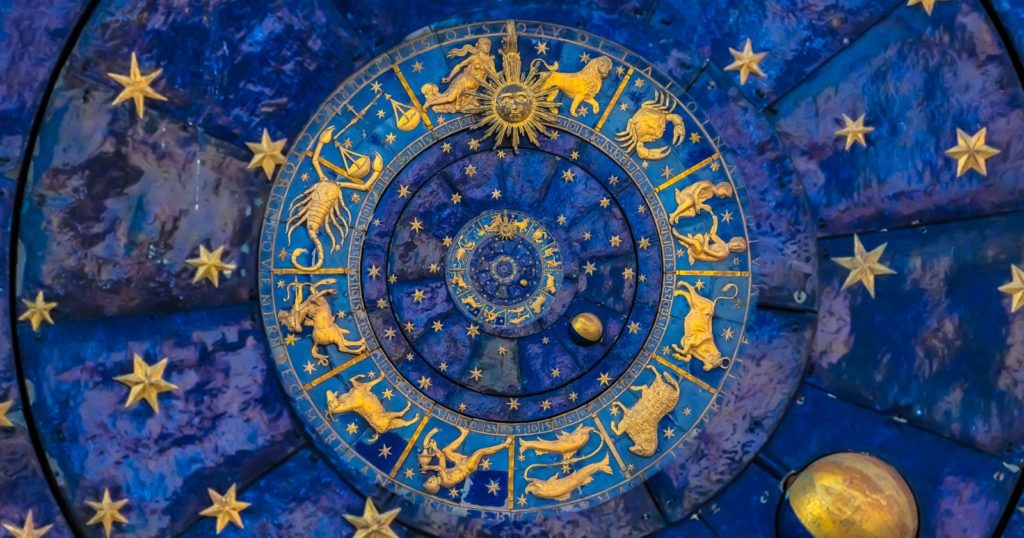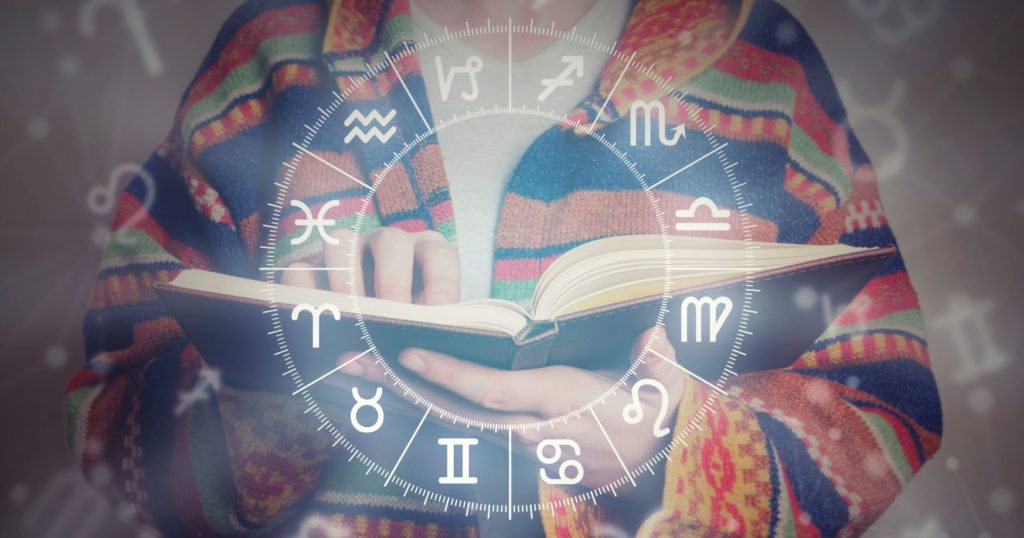Horoscopes and zodiac signs have fascinated humanity for centuries, intertwining our lives with a cosmic dance that spans across time and cultures. From the ancient Greeks to the modern day, the allure of astrology remains an enchanting mystery that promises a deeper understanding of ourselves and the world around us. At the heart of this mystical journey lie the twelve zodiac signs, each associated with one of the four dominant elements: Fire, Air, Earth, and Water.
These four elements are believed to permeate all aspects of life, influencing our passions, thoughts, pragmatism, and emotions respectively. They are said to shape the characteristics of the zodiac signs, adding a layer of depth to our understanding of horoscopes. Whether you are an ambitious Aries ablaze with the fire element or a sensitive Cancer attuned with the calming waters, exploring your dominant element can provide intriguing insights into your personality and behavior.
But what exactly are these dominant elements? And how do they connect to our horoscope signs? This article will take you on a journey through the stars and elements, uncovering the fascinating world of astrology and its potent impact on our lives. Prepare to delve deep into the celestial realm, where every zodiac sign holds a key to unlocking the mysteries of the self.
Understanding these elements and their influence on us is no mere exercise in curiosity. It offers us a chance to better comprehend our own behaviors, motivations, strengths, and weaknesses. It can guide us towards personal growth, help us navigate our relationships, and even inspire us towards self-realization. So, let’s begin our exploration of the cosmos and the elements that bind it.
Understanding Horoscope Signs and the Zodiac
To fully comprehend the significance of dominant elements in horoscopes, we must first understand the history of the zodiac. The concept of zodiac signs has been a part of human civilization for thousands of years, with the earliest known astrological records dating back to the Babylonians in the 1st millennium BC. These celestial divisions were later adopted and further developed by the Greeks and Romans, forming the foundation of Western astrology as we know it today.
The Zodiac is a circular band in the sky divided into twelve equal parts, each housing a unique constellation. These twelve divisions represent the twelve zodiac signs: Aries, Taurus, Gemini, Cancer, Leo, Virgo, Libra, Scorpio, Sagittarius, Capricorn, Aquarius, and Pisces. Each sign corresponds to a period within the year and is believed to bestow specific characteristics and traits to individuals born under its influence.
Many believe that your zodiac sign can influence your personality traits, behaviors, and even your destiny. For example, Leos are often described as charismatic and ambitious, while Pisces are viewed as compassionate and imaginative. However, it’s important to remember that these are generalized interpretations and that individual differences can vary greatly.
Yet, astrology and zodiac signs have often been met with skepticism from the scientific community. Critics argue that there’s no empirical evidence supporting the claims made by astrologers. Furthermore, they point out that the position of constellations have shifted due to the Earth’s axial precession since these signs were first determined, making the original zodiac system inaccurate. Despite this criticism, many people continue to find value and guidance in astrology, often viewing it as a symbolic language or a tool for introspection.
While Western astrology is what most people are familiar with, Eastern astrology, particularly Chinese astrology, is another well-established system with its own unique signs and interpretations. Unlike Western astrology, which is based on the sun’s position at the time of birth, Chinese astrology is based on the lunar year and uses animals instead of constellations to represent the signs.
Horoscope signs also play a significant role in determining compatibility between individuals. This aspect of astrology is often utilized in romantic contexts, guiding people in finding potential partners who are astrologically ‘compatible’ with them. For instance, Taurus, an Earth sign, is traditionally seen to be most compatible with Cancer, a Water sign, as Earth and Water are believed to complement each other.
But your Sun sign isn’t the only important aspect of your astrological profile. Your Moon sign, representing your emotions, inner mood, and instinctive reactions, and your Rising sign, symbolizing the way you present yourself to the world, also play integral roles. The complex interplay between these signs in your natal chart offers a more nuanced understanding of your personality and life path.
Finally, we arrive at the elemental associations of the zodiac signs. Each zodiac sign is connected to one of the four elements, believed to be a fundamental force shaping the traits and characteristics of the sign. Fire signs are Aries, Leo, and Sagittarius; Earth signs are Taurus, Virgo, and Capricorn; Air signs are Gemini, Libra, and Aquarius; and Water signs are Cancer, Scorpio, and Pisces.
Deep Dive into the Four Dominant Elements
Fire, the first of the elements, is associated with the zodiac signs Aries, Leo, and Sagittarius. Fire is seen as the driving force of the zodiac, embodying warmth, energy, and vitality. It symbolizes passion, creativity, and spirit, a blazing force that illuminates the world. Individuals with a Fire sign are often perceived as bold, dynamic, and charismatic, their personalities reflecting the burning intensity of their elemental association.
Each Fire sign, however, expresses the fire element in its own unique way. Aries, the first sign of the zodiac, embodies the raw, explosive energy of fire, often resulting in a pioneering and courageous spirit. Leos carry the sustained, radiant warmth of a roaring hearth, manifesting in their magnanimous, proud, and generous nature. Sagittarius, on the other hand, embodies the transformative fire of a burning sage, expressing in their adventurous, philosophical, and freedom-loving traits.
Next in the elemental sequence is Earth, associated with Taurus, Virgo, and Capricorn. The Earth element symbolizes stability, practicality, and resilience. It embodies the physical world, representing reliability, patience, and hard work. Earth signs are generally seen as grounded, loyal, and dependable, firmly rooted in the tangible reality of their surroundings.
Each Earth sign brings a unique expression of the Earth element. Taurus, the first of the Earth signs, reflects the fertile and abundant aspect of Earth, often resulting in a sensual, patient, and determined personality. Virgos embody the methodical and organized aspect of Earth, evident in their analytical, detail-oriented, and helpful nature. Capricorns, lastly, represent the unyielding and resilient aspect of Earth, expressed in their disciplined, ambitious, and practical character.
Air, the third element, corresponds to Gemini, Libra, and Aquarius. The Air element signifies intellect, communication, and social interaction. It embodies the realm of thought, mirroring the abstract and the intangible. Individuals with an Air sign are often perceived as intellectual, curious, and sociable, their personalities mirroring the dynamic and fluid nature of their element.
The Air signs each give a unique expression to their dominant element. Geminis mirror the swift, mercurial nature of the wind, often resulting in a versatile, curious, and communicative personality. Libras embody the harmonizing and balancing aspect of air, evident in their diplomatic, fair-minded, and social nature. Aquarians, on the other hand, reflect the free and unpredictable aspect of air, expressed in their independent, innovative, and humanitarian character.
The final element is Water, associated with Cancer, Scorpio, and Pisces. Water symbolizes emotions, intuition, and the subconscious. It embodies the emotional realm, highlighting the fluid, deep, and nurturing aspects of life. Water signs are generally seen as sensitive, empathetic, and intuitive, their personalities reflecting the depth and fluidity of their dominant element.
Each Water sign embodies a unique aspect of the Water element. Cancers reflect the nurturing and protective aspect of water, often manifesting in a caring, intuitive, and protective nature. Scorpios embody the transformative and intense aspect of water, evident in their passionate, stubborn, and resourceful character. Pisces, finally, represent the imaginative and mystical aspect of water, expressed in their compassionate, artistic, and intuitive traits.
Different elemental signs interact with each other in distinctive ways, influenced by the characteristics of their respective elements. For example, Fire and Air signs are often compatible as fire needs air to sustain itself, while Earth and Water signs usually harmonize well as water nourishes the earth. Understanding these dynamics can enrich our knowledge of interpersonal relationships and self-understanding.
From a scientific and psychological perspective, the influence of elements on personality remains a topic of debate. Critics argue for the lack of empirical evidence and the role of confirmation bias in our interpretations. However, proponents point to the symbolic value of astrology, viewing it more as a psychological tool that provides a framework for self-exploration and understanding human behavior. It’s up to each individual to decide how they wish to engage with astrology.
Importance and Implications of Dominant Elements in Astrology
But what does it mean when we talk about ‘dominant elements’ in astrology? Your dominant element is the one that is most represented in your birth chart, a diagram that depicts the positions of the planets at the exact moment of your birth. Your dominant element is believed to strongly influence your temperament, personality, and general disposition.
According to astrological theory, the dominant element can greatly impact a person’s behavior and personality. For example, a person with a dominant Fire element may be more driven, passionate, and dynamic, while someone with a dominant Earth element might be more grounded, practical, and reliable. Similarly, an Air-dominant individual could be more intellectual and communicative, and a Water-dominant person might be more intuitive and emotionally attuned.
It’s also interesting to note what happens when an element is underrepresented or missing in your birth chart. A lack of a certain element could point to potential challenges or areas of growth. For example, if Water is missing or weak in your chart, you might struggle with empathy or emotional expression, whereas a lack of Earth might indicate challenges with practicality or being grounded.
Understanding your dominant element can guide personal growth and relationships. It can provide insights into your behavioral patterns, helping you understand your strengths and weaknesses. Moreover, it can also shed light on your compatibility with others, assisting you in navigating interpersonal dynamics.
Astrologers use birth charts to determine the dominant elements. These charts are complex diagrams that map the exact positions of celestial bodies at the time of your birth, providing a unique ‘snapshot’ of the sky. Interpreting these charts requires a deep understanding of astrological symbolism and methods.
However, it’s important to note that the interpretations of dominant elements should be taken as broad guidelines rather than definitive predictions. While some people find these interpretations enlightening, others may not resonate with them. Additionally, while some scientific studies have investigated astrology’s psychological implications, the field remains largely unsupported by mainstream science. Therefore, it’s crucial to approach astrology with an open mind and a critical eye.
Conclusion
In the grand cosmic dance of astrology, horoscope signs and the dominant elements offer a fascinating insight into the intricate tapestry of human nature. They invite us on a journey of self-discovery, providing a symbolic language to understand ourselves and our place in the universe. Whether we are ignited by the passionate fire, grounded by the steadfast earth, enlightened by the ever-changing air, or nurtured by the deep waters, our zodiac signs and dominant elements add a layer of depth to our human experience.
From the ancient Babylonians to the modern-day astrologers, the study of the stars and their influence on our lives has held a timeless appeal. Despite the skepticism and the debate surrounding its scientific validity, astrology continues to thrive as a tool for introspection, self-awareness, and understanding human behavior.
So next time you gaze upon the night sky or read your horoscope, remember: you are a unique blend of the celestial bodies’ movements and the dominant elements’ primal forces. Embrace the wisdom of the stars and the elements, and let them guide you on your path to self-discovery and growth.
Whether we subscribe to the astrological beliefs or not, the horoscope signs and their corresponding elements provide a rich, symbolic framework for introspection and self-understanding. Even if not taken literally, they serve as a reminder of the diverse, multifaceted nature of the human experience – a reality as complex and varied as the cosmos themselves.
Resources:
- Brady, B. (2005). Brady’s Book of Fixed Stars. Weiser Books.
- Greene, L. (2001). The Astrological Neptune and the Quest for Redemption. Weiser Books.
- Tarnas, R. (2007). Cosmos and Psyche: Intimations of a New World View. Penguin Books.




